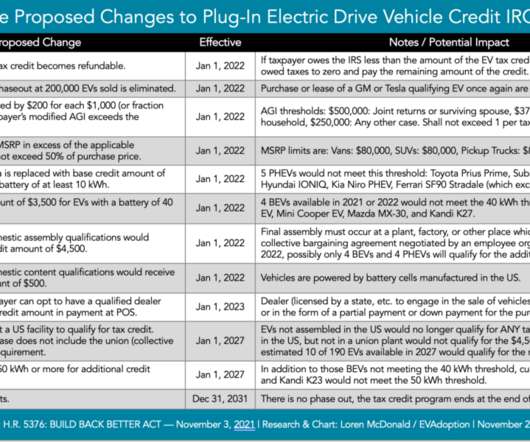What Does GM’s “30 New EVs By 2025” Promise Mean for the US Market?
EV Adoption
FEBRUARY 7, 2021
But in the automotive world and especially when related to electric vehicles, deliveries frequently fall well short of what was promised. And it is looking through that lens that I wanted to dive into GM’s most recent electric vehicle “supply” promise. Electric Vehicle PR Is Driving Up the Stock Price.












Let's personalize your content